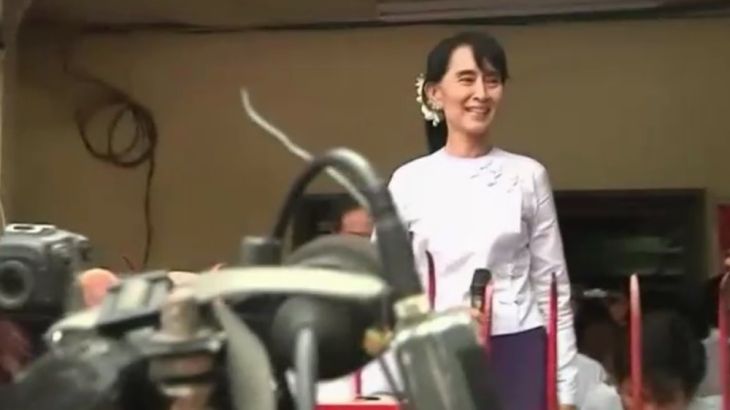
Rohingya: Hate speech, lies and media misinformation
How a vicious media campaign has intensified the pressure on an embattled people. Plus, Sinai’s media black hole.
On The Listening Post this week: behind the Rohingya crisis, a vicious media campaign has steadily intensified the pressure on an embattled people. Plus, the media black hole in Sinai, Egypt.
Rohingya: Hate speech, lies and media misinformation
Keep reading
list of 4 itemsNPR editor resigns after accusing US outlet of liberal bias
Lawmakers brawl as Georgian Parliament considers ‘foreign agent’ bill
Journalist loses foot after being badly wounded in Israeli attack in Gaza
The number of majority Muslim Rohingya forced from their homes in Myanmar is now around 400,000. The United Nations says it looks like a “textbook example” of ethnic cleansing.
The country’s de facto leader – a former winner of the Nobel Peace Prize and darling of the international news media – is being seen in an entirely new light. Aung San Suu Kyi and her government are on the defensive. She has taken to talking about fake news and a “huge iceberg of misinformation”.
Aung San Suu Kyi’s refusal to condemn the violence is a troubling angle for many Western journalists to cover, given the way they have venerated her in the past.
Contributors:
Maung Zarni – Adviser, European Centre for the Study of Extremism/Burmese Human Rights Activists
Oliver Slow – Chief of staff, Frontier Myanmar
Mark Farmaner – Executive director, Burma Campaign UK
On our radar:
- The murder of a journalist in India – and some of the online habits of the prime minister there – leads to the birth of a new, trending hashtag: Block Narendra Modi.
- A racially charged campaign in South Africa leaves a PR company with a PR problem even it cannot spin.
- Fox News is making more changes to its evening line-up, necessitated by another high-profile anchor losing his job under scandalous circumstances.
The silence in Sinai
We are taking a second look at a story that you do not hear much about. It is unfolding in a place that – by government design – has become a black hole for news. Just this week, at least 18 policemen were killed there in the latest attack carried out by an affiliate of the Islamic State of Iraq and the Levant (ISIL, also known as ISIS).
The area has been under an almost constant state of emergency since 2014.
It’s northern Sinai, in Egypt, and the fighting there is a major headache for President Abdel Fattah el-Sisi – who has sold himself, at home and abroad, as the only possible guarantor of Egypt’s security and stability.
Sisi’s government, which has already put dozens of journalists in jail, has placed a lid on independent reporting in Sinai. The Listening Post takes a look at the stories there going untold.
Contributors:
Nancy Okail – Executive director, Tahrir Institute for Middle East Policy
Maged Mandour – Egyptian writer and researcher
Sherine Tadros – Head, Amnesty International’s New York office
Joe Stork – Deputy director for the Middle East and North Africa, Human Rights Watch